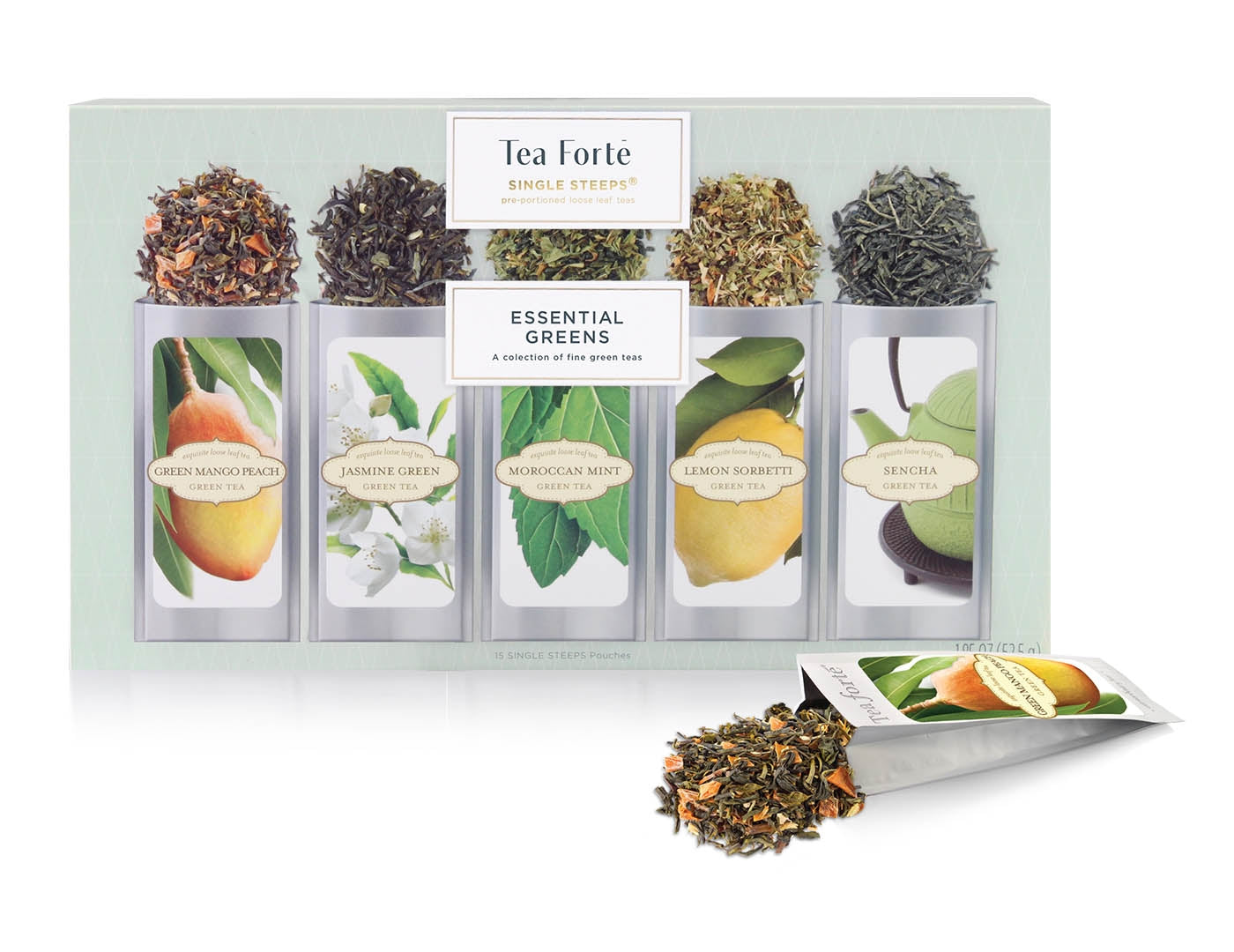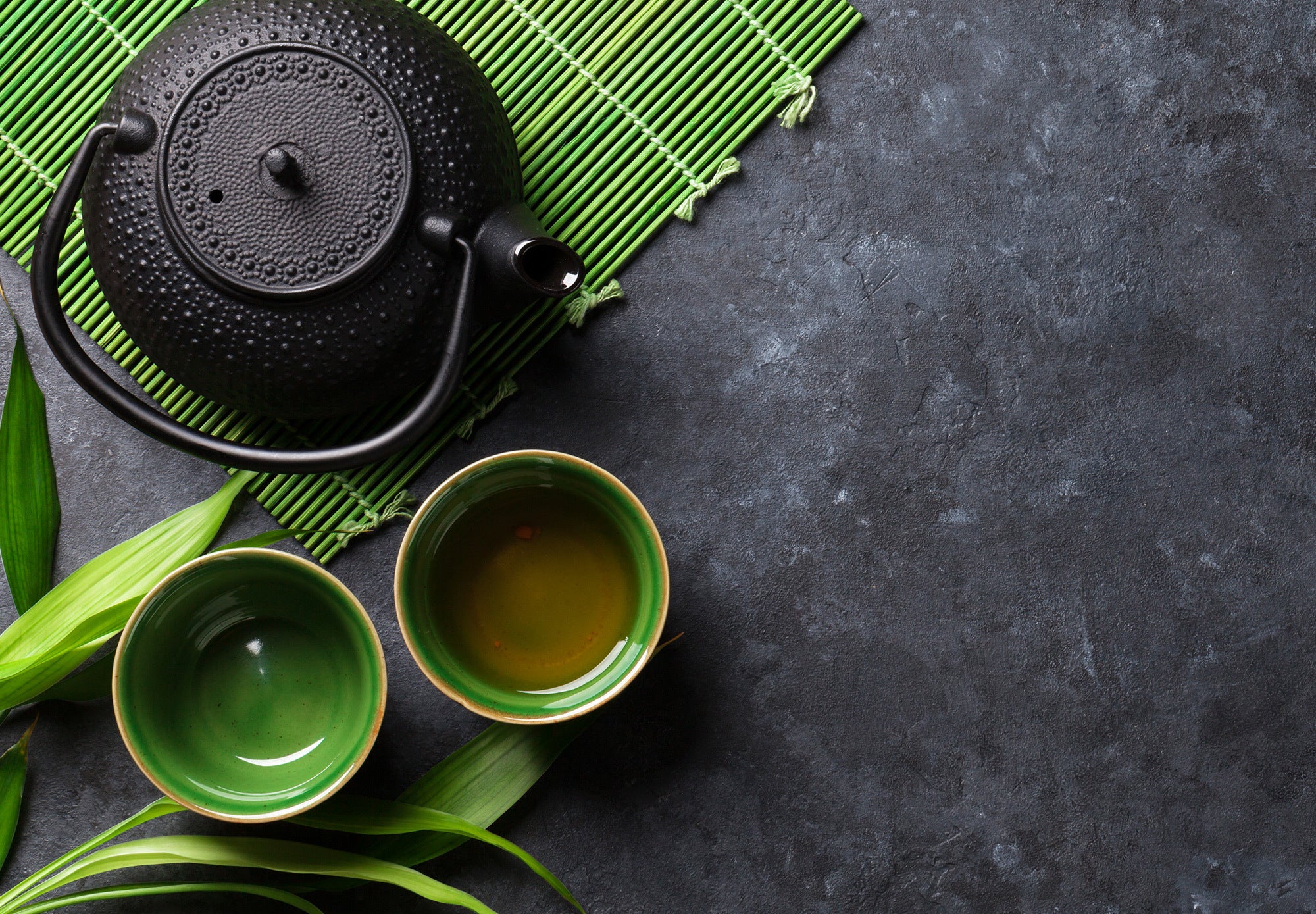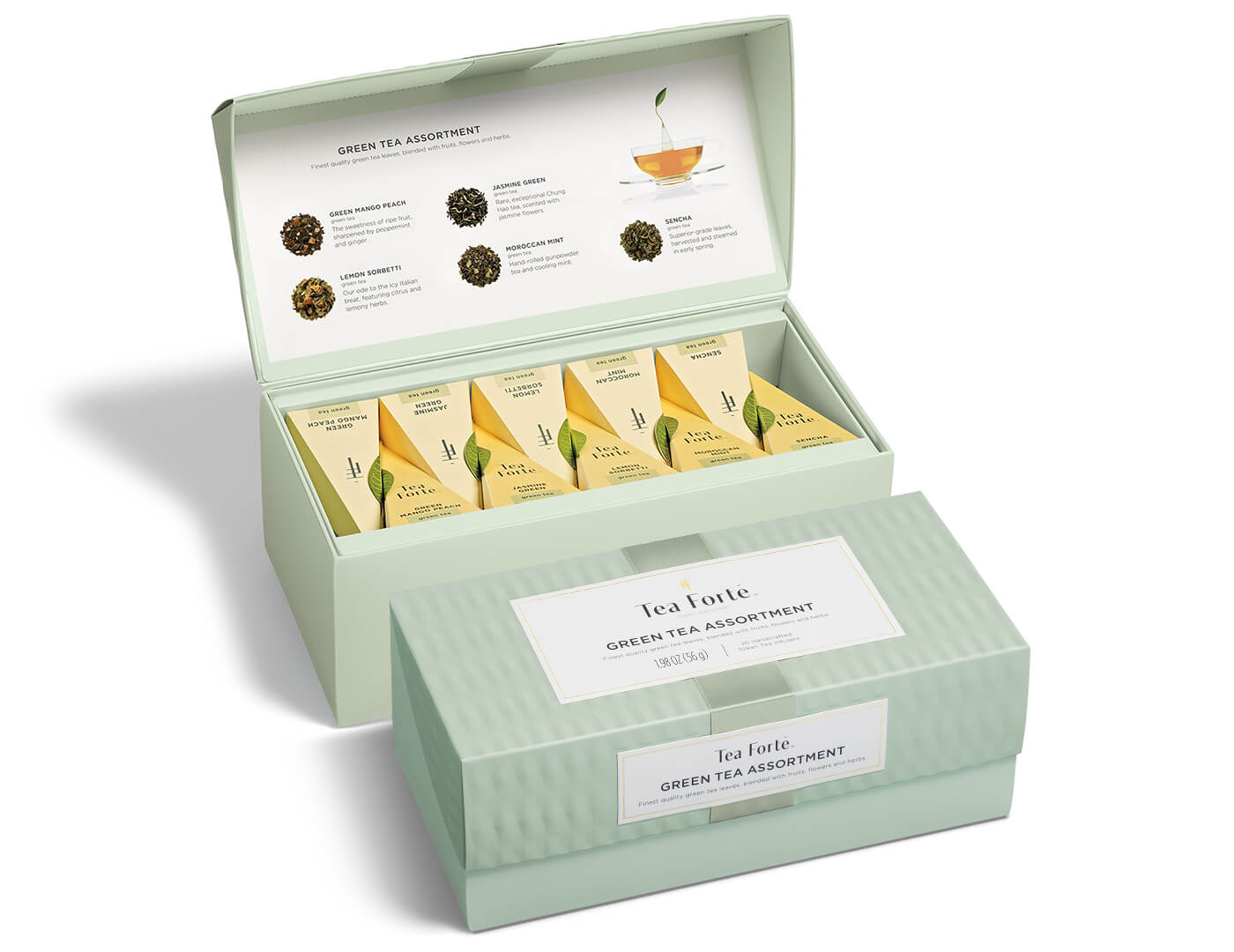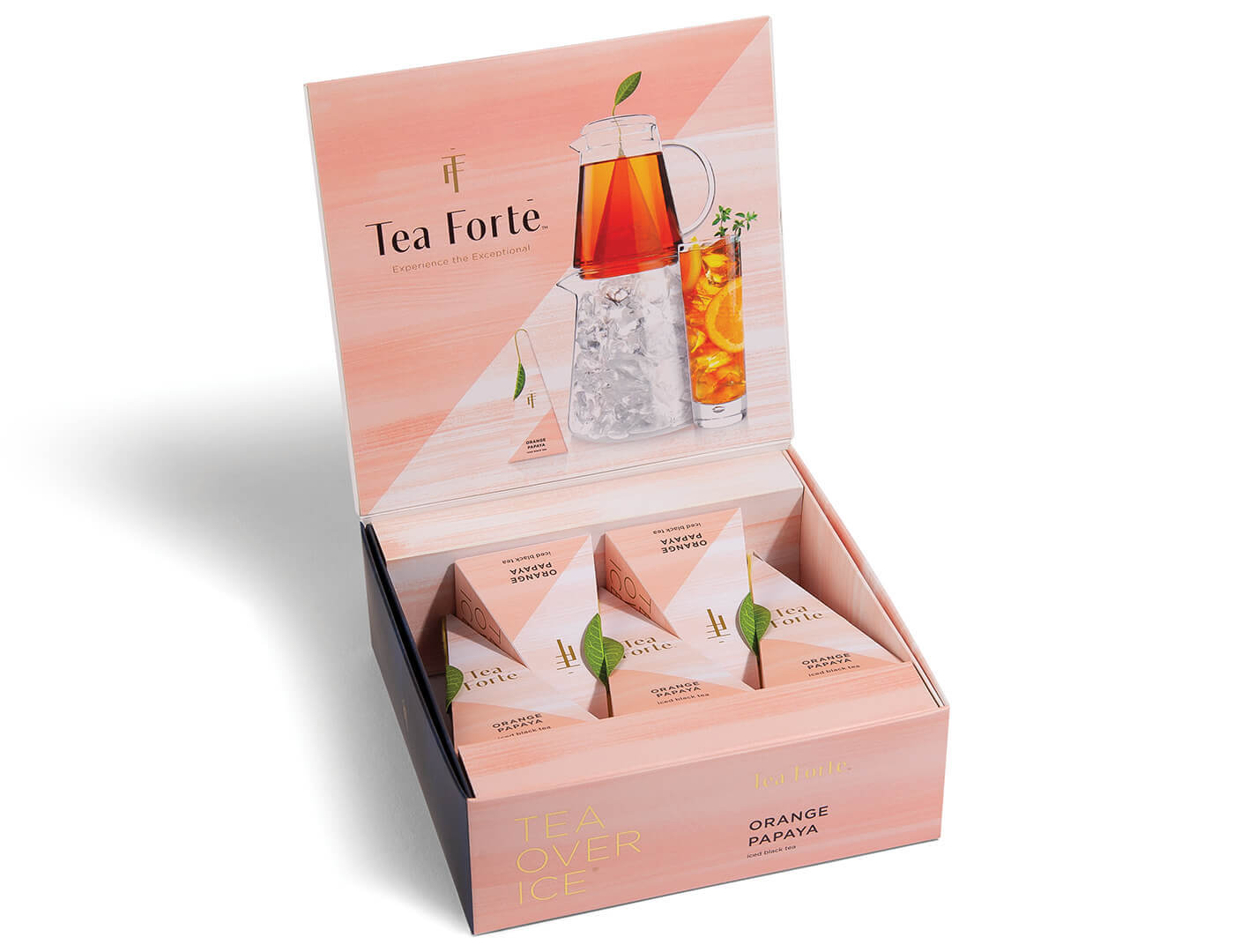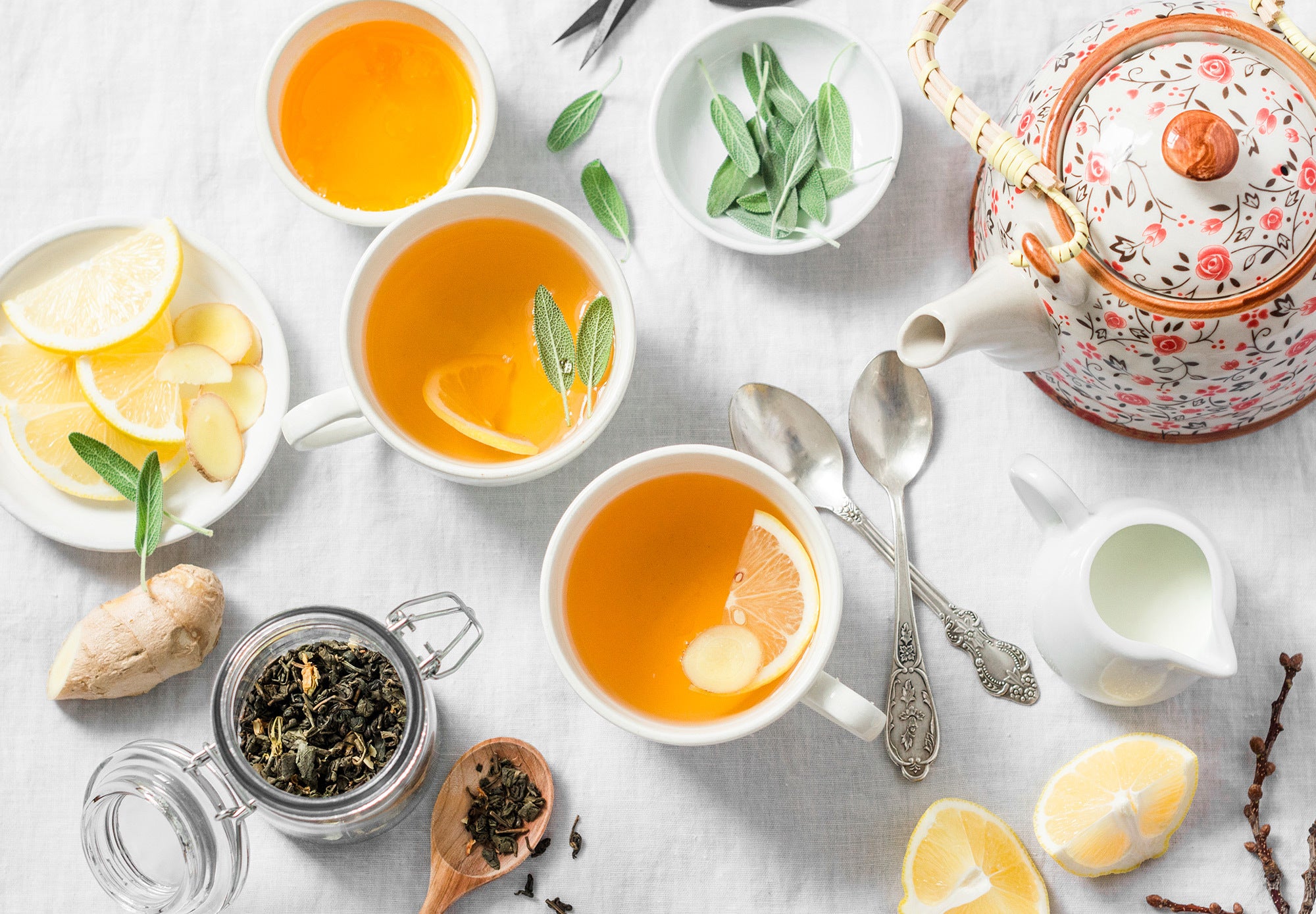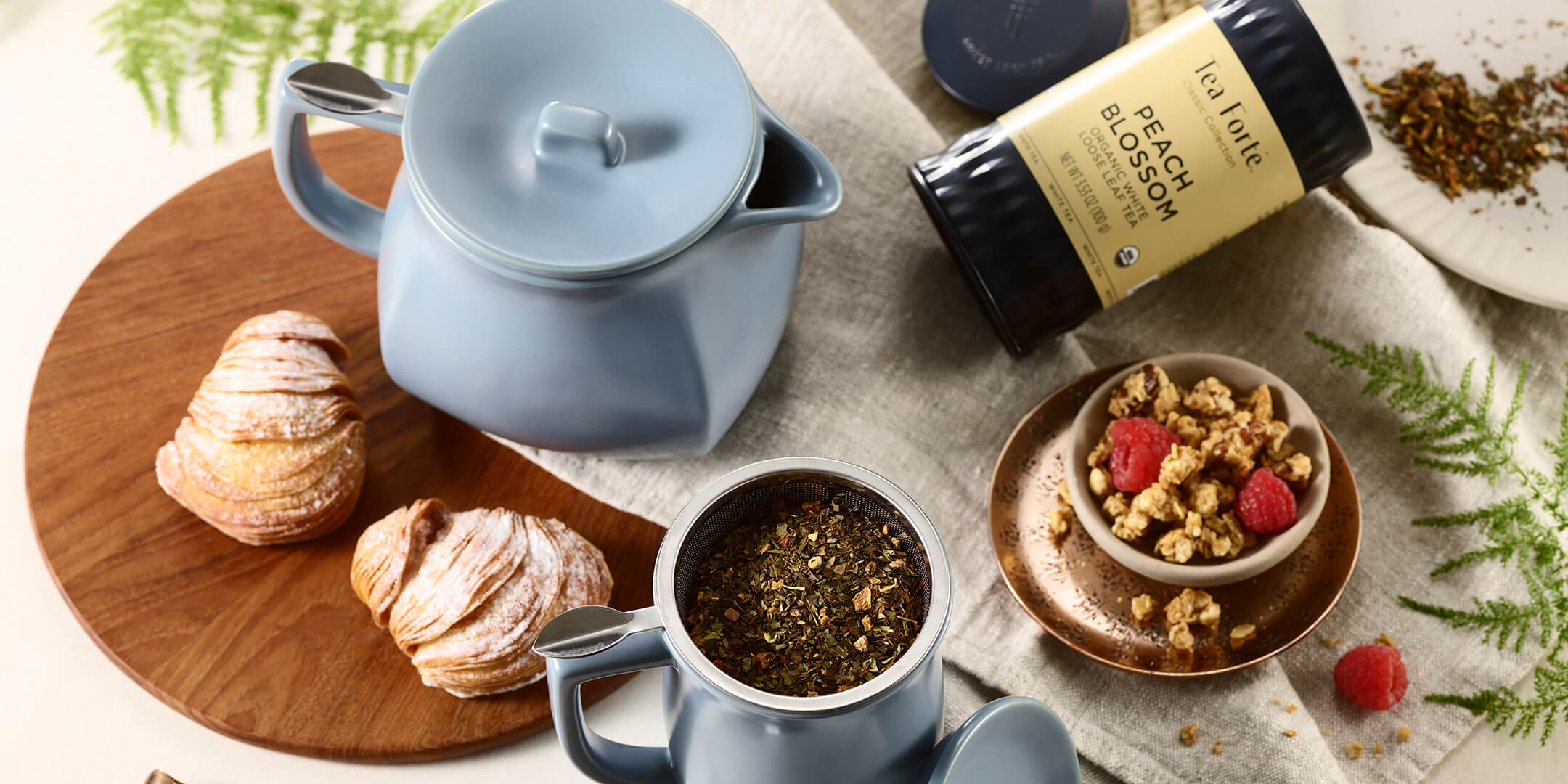For a proper cup of tea, preparation is everything. Each type of tea -- green, black, white, oolong, and herbal tisanes included -- has its own ideal method of preparation to bring out the true flavor of the leaves and allow for optimal enjoyment. And when it comes to green tea, there are specific instructions you'll want to follow for the best-tasting cup. Read on for a guide on how to prepare green tea in all its forms.
THE PROPER STEEP
Sencha is the type of tea that first comes to mind when most people think of green tea. Made from the Camellia Sinensis plant, sencha’s leaves, along with most green teas, are rolled, steamed, and fired in a pan to produce the long-lasting tea leaves that arrive in our cups, ready for steeping. To properly steep a pot or cup of green tea, there are two key components to keep in mind: temperature and time.
TEMPERATURE MATTERS
Heat your water to 175 -185˚ F for most green teas. Why is temperature so important? If the water is too hot, the delicate green tea leaves will burn, resulting in a charred, bitter taste. Before steeping, always check the instructions on the package, as some varieties may call for a slightly higher or lower steeping temperature. If you don't have a kettle with specific temperature settings, bring the water to a boil, remove from heat, and wait approximately 3-5 minutes to cool.

Just as important as temperature, it's important to keep track of the time the tea leaves are in the water. Steep green tea for 2-3 minutes, taking a sip at the two-minute mark to test the steep’s flavor. After three minutes, the longer you steep green tea the more astringent, bitter, and less pleasant it will taste, so keep an eye on the clock and be careful not to oversteep. Remove the steeping basket or pyramid tea infuser from the water when time is up.
PRE-WARMING & ACCOMPANIMENTS
If you're using a teacup and teapot to serve your tea, it’s considered good form to pre-warm the teacup with a swirl of hot water to protect the delicate flavor as the tea reaches the inside of the cup. Of course, if your cup includes a built-in infuser basket, such as our KATI® Steeping Cup, this extra step isn’t necessary.
While some tea enthusiasts may enjoy milk or lemon (but never both) with black and oolong teas, neither is used with green tea. A hint of sugar or honey is fine, so either sweeten to taste or simply enjoy the tea on its own.
How To Prepare Matcha Green Tea
Matcha is the fine green powder made from stone-ground green tea leaves, and it’s prepared and enjoyed differently from all other green teas. For most tea preparation, the leaves are steeped and removed before drinking. However with matcha, the tea leaves are ingested along with the liquid it's steeped in.
Creamy and unique when infused with milk, resulting in an earthy elixir when infused with water, matcha is a versatile culinary ingredient often used in baked goods and sauces as well. Its careful preparation is at the heart of many traditional matcha ceremonies dating back many centuries with quite a bit of ritual etiquette to adhere to, but to make modern milk- or water-based infusions requires very little practice.
Matcha infusions come in two forms: usucha, which means “thin tea,” and koicha, which means “thick tea.” The difference lies in the ratio of matcha powder to water, and the consistency of each is quite different, as the names imply.
Those who have not prepared matcha before may wish to start by making usucha, the flavor and texture of which is slightly less intense. To make it, heat fresh, clean water (8 ounces per serving) to 185˚F and then, in a glass or ceramic bowl, whisk one teaspoon of matcha powder into the water until frothy. Sweeten to taste, if desired, or enjoy the infusion all on its own.
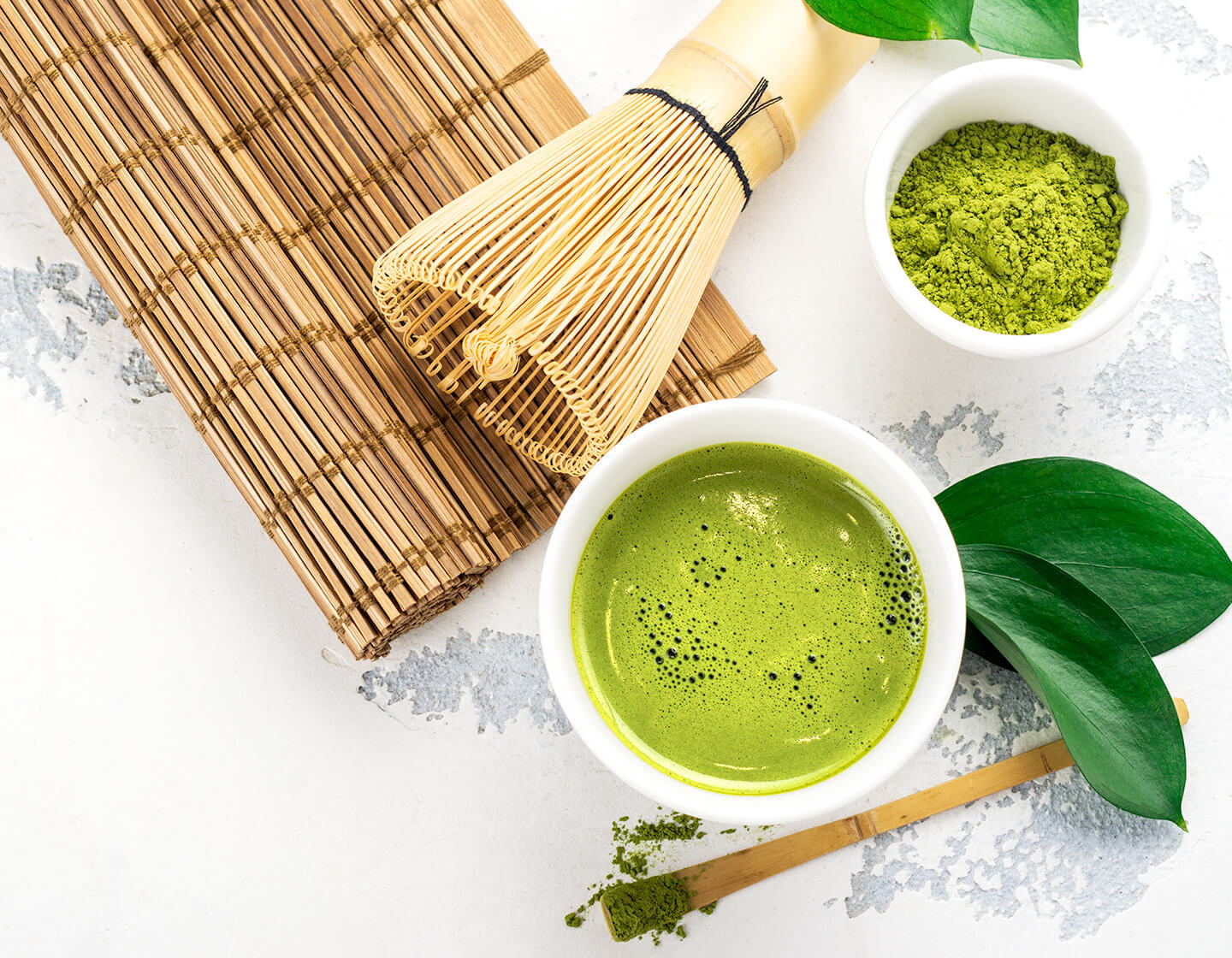
For a modern take on usucha, you may wish to use milk instead of water to prepare a matcha latte – a rich, creamy drink enjoyed in many parts of the world in the 21st century. It may be enjoyed hot, or served iced after preparing a hot infusion as usual, then cooling down and serving over ice.
o make a thicker, richer koicha infusion, you’ll use half the amount of water and twice the amount of matcha powder as a typical usucha infusion. So, begin with four ounces of fresh, clean water per serving, heat it to 185˚F, and then whisk two teaspoons of matcha powder into the water using a small glass or ceramic bowl.
Honor The Ritual of Matcha
To honor one of the many intricate traditions of Japanese matcha ceremonies practiced for centuries, consider preparing your matcha using traditional Japanese teaware, which includes a ceremonial bowl (called a “chawan”), bamboo whisk (“chasen”), and ladle or scoop ("chashak") for measuring and transferring the powder into the water. These objects hark back to the earliest days of tea ceremonies held across Japan, offering a time-tested way to connect with one another and oneself.
For the perfect cup of green tea in whichever form you choose, explore all of Tea Forté’s green tea blends.
POPULAR GREEN TEAS
Petite Presentation Box Green Tea Assortment
Save 25% at checkout
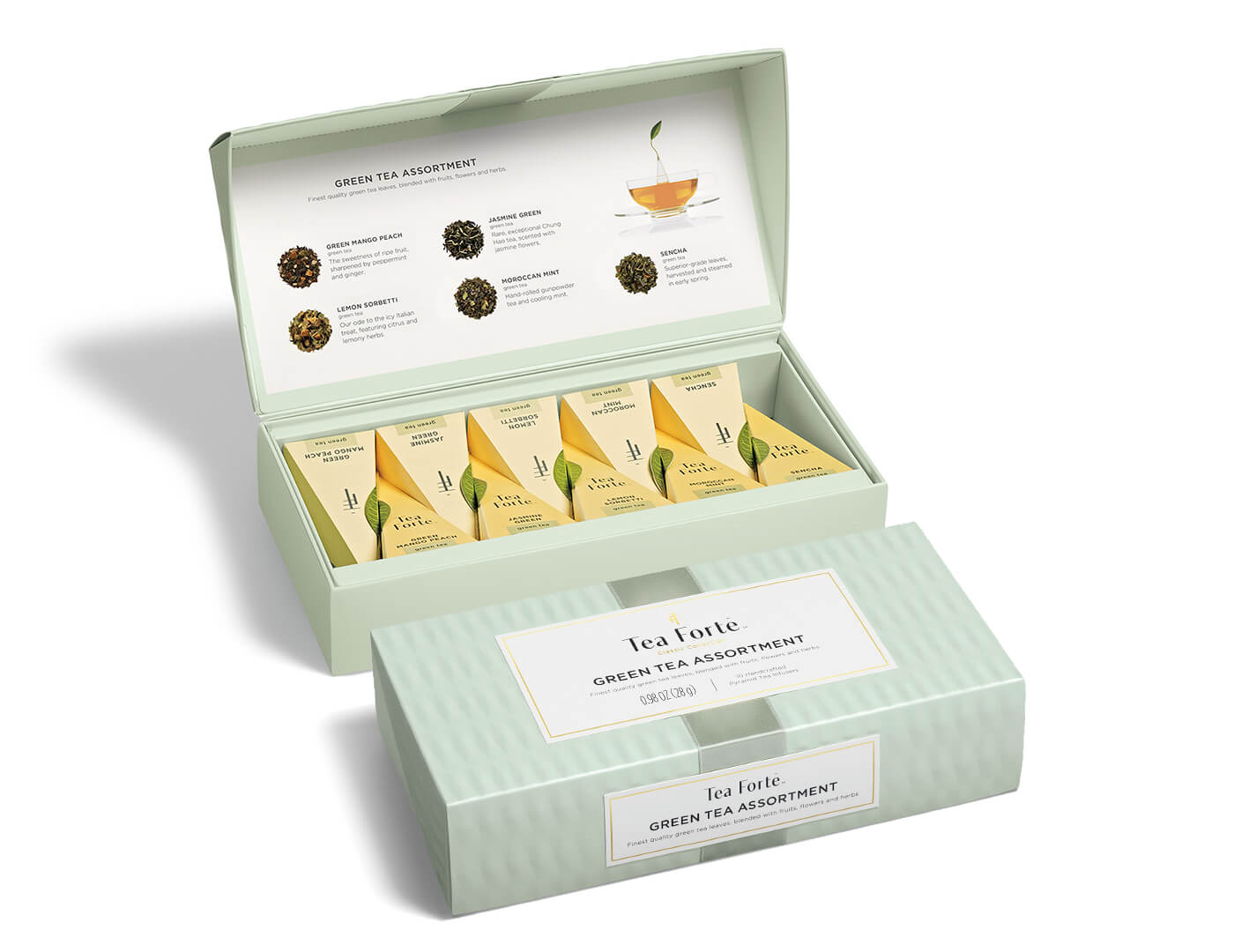
Single Steeps® Essential Greens
Save 25% at checkout
